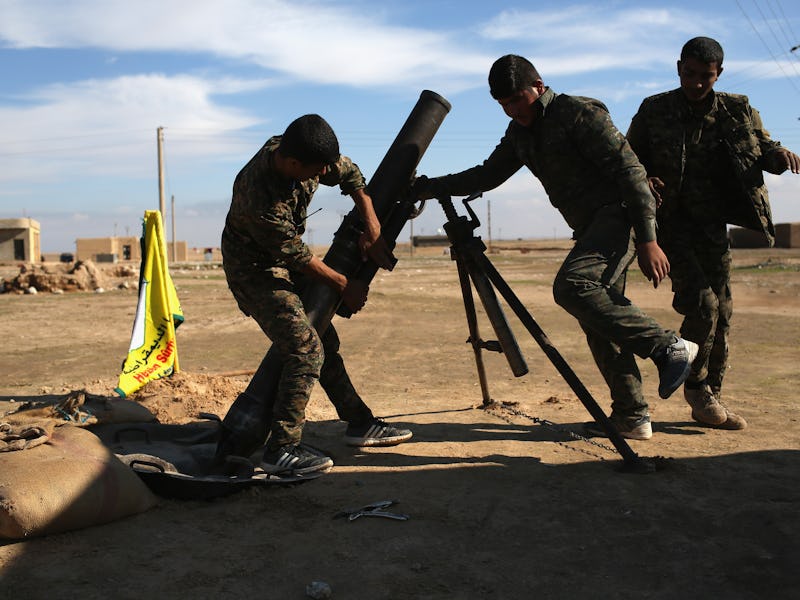Captagon Is Crystal Meth for the Modern Syrian Soldier
Fenethylline was originally produced to treat ADHD in kids. Now, uncontrolled counterfeits are turning soldiers into addicts.

In a conflict as savage as the Syrian Civil War, soldiers spend little time on sleep. To stay alert and awake for days at a time, militias have turned to what’s being called a “new amphetamine”: Captagon. In its unregulated, counterfeit form, which has been adopted by soldiers across the Middle East, it’s incredibly effective, highly addictive, and can wreak havoc after long-term use. Sound familiar? It should.
That’s because the concept of using amphetamines to keep soldiers vigilant isn’t new. During World War II, German soldiers were hopped up on tabs of crystal meth known as Panzerschokolade, or “tank chocolate.” Gulf War and Vietnam vets got by on benzos. Even now, the rate at which U.S. soldiers are being prescribed stimulants like Ritalin and Adderall is at an all-time high.
Captagon, also known as fenethylline, isn’t new either. It’s been around since the ‘60s, when it was developed by German manufacturer Degussa AG to treat kids with ADHD (then known as “hyperkinetic children”). Chemically, it’s part d-amphetamine, which makes up most of Adderall, and half theophylline, a relative of caffeine; the effects, according to smart drug experts Smarter Nootropics, are “similar to taking Adderall XR and drinking tea or coffee.” According to a 1986 study in Drug Alcohol Dependence, it isn’t nearly as dangerous as other drugs:
“It has few adverse side effects, a lower abuse potential and little actual abuse compared to amphetamine. Thus its benefit/risk assessment is substantially more favourable than that of other central stimulants.”
Still, it was eventually deemed too addictive to be safe. The FDA labelled it a Schedule I substance in 1981, and the WHO followed suit in the 1980s. A black market was born.
While the risks of the original Captagon are well known, it’s harder to predict the effects of the Syrian-made version and other counterfeits, the drugs currently fueling soldiers in the Middle East. The Syrian Captagon industry generates millions of dollars in revenue, thanks to the drug’s easy-to-find precursors, low production costs, and high demand from both soldiers and, increasingly, civilians. A 2014 report by the U.N. Office on Drugs and Crime found that Syria’s “comparatively high” legal allowances for the cold medicine pseudoephedrine — a Captagon precursor — make it a prime location to produce illicit stimulants.
If Captagon — or whatever drug is being sold under the name — is anything like its army-fueling amphetamine predecessors, physicians in the Middle East better brace themselves to treat a new generation of addicts. The Syrian Civil War — and the drug use necessary to keep it going — don’t appear to be slowing.